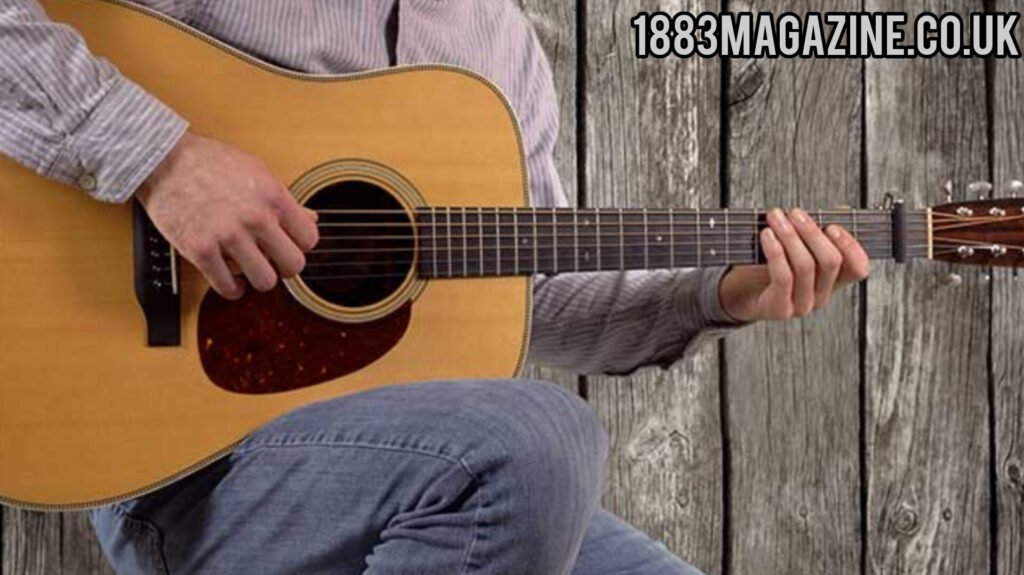Altered scale guitar in country music: Country music is loved for its simple melodies, heartfelt lyrics, and signature guitar twang. However, as the genre evolves, musicians are experimenting with new techniques to freshen up their sound. One such technique gaining popularity is the altered scale—a tool traditionally used in jazz, now finding its way into country guitar playing. The altered scale adds a layer of complexity to the familiar country sound, offering a new way for guitarists to express themselves.
In this article, we’ll break down what the altered scale is, explain how it’s being used in country music, and explore why more guitarists are embracing it. Whether you’re a musician or a fan, this guide will help you understand the altered scale’s role in modern country music.
What Is an Altered Scale?
The altered scale might sound intimidating, but it’s simply a modified version of the dominant scale. It involves altering specific notes in a chord, such as the 5th, 9th, and 11th, creating a slightly dissonant sound. This unique blend of notes generates tension, which makes the resolution of the music more impactful.
For years, the altered scale has been a favorite among jazz musicians, known for its ability to add complexity and depth to solos. Now, this scale is being adopted by country guitarists who want to push the boundaries of their playing. It might not be as common as the pentatonic or major scale, but the altered scale is slowly making waves in the country music scene.
How the Altered Scale Is Used in Country Music
Country music typically sticks to simple scales like the major or pentatonic scales. These are easy to understand and help keep the music grounded in tradition. However, the altered scale is shaking things up by introducing more complex and interesting sounds to country solos.
The altered scale is particularly useful in adding tension during guitar solos. Imagine you’re listening to a laid-back country ballad, then suddenly, the guitarist throws in a few unexpected, “off” notes. That’s the altered scale at work. These moments of dissonance grab the listener’s attention and make the return to traditional sounds more satisfying.
This scale is often used by musicians who blend country with other genres like blues or jazz. It allows them to experiment with different musical textures while keeping the heart of country music intact. You’ll most likely hear the altered scale in country rock, bluegrass, or crossover country tracks where musicians feel free to stretch the genre’s boundaries. Altered scale guitar in country music
Why Guitarists Use the Altered Scale
So, why would a country guitarist want to use the altered scale? For starters, it adds emotion and complexity to their solos. The altered scale allows for tension, giving the music an edge and making the listener feel more engaged with the song. When used correctly, it can make a guitar solo feel more dramatic and impactful.
Another reason is versatility. The altered scale helps guitarists transition between genres seamlessly. Many country guitarists are also influenced by blues, jazz, or rock, and the altered scale is a tool that works across all these styles. This crossover appeal makes it a valuable addition to any musician’s toolkit.
Finally, the altered scale helps guitarists stand out. In a genre as competitive as country music, doing something different can set a musician apart. Using this scale, even in small doses, adds a unique twist to their playing, making them more memorable to listeners.
Techniques for Applying the Altered Scale on Guitar
Incorporating the altered scale into your playing is easier than you might think. Start by practicing it over dominant chords. For example, if you’re playing a G7 chord, use the altered scale instead of sticking to the usual major or pentatonic scales. You’ll notice the tension right away, but with time, you’ll learn to control and resolve it effectively.
Next, experiment with combining the altered scale with scales you’re already comfortable with. Try starting a solo using the pentatonic scale, and then throw in a few altered notes for a unique twist. This technique helps add variety without making the song feel too jarring.
The key to mastering the altered scale is practice. Start with small sections of your playing, then gradually integrate it into your solos. With time, the altered scale will become a natural part of your guitar vocabulary.
Famous Guitarists Using Altered Scales in Country Music

While the altered scale isn’t the most common tool in country music, several well-known guitarists are using it to push the genre forward. For instance, Brad Paisley, known for his guitar prowess, often incorporates elements of jazz, blues, and rock into his solos. Listen carefully, and you’ll catch glimpses of the altered scale adding tension and surprise to his playing.
Another example is Vince Gill, a country legend who seamlessly blends traditional sounds with modern techniques. Gill’s guitar work is full of unexpected moments, and the altered scale is one of the tools he uses to keep his solos interesting and emotionally rich.
Then there’s John 5, a guitarist known for his work in hard rock and metal but who has a deep love for country music. He often mixes the altered scale into his more experimental country tracks, proving that this scale can bridge the gap between country and other genres.
Common Misconceptions About Altered Scales in Country Music
There are a few misconceptions about the altered scale in country music. One is that it’s too complex or dissonant for the genre. While it’s true that the altered scale adds tension, it doesn’t have to be overwhelming. Used in moderation, it can enhance a song without taking away from its simplicity.
Another misconception is that only advanced players can use the altered scale. While it does take some practice, even beginners can start incorporating it into their playing. By starting small and gradually building confidence, any guitarist can master this technique and use it to add flair to their solos.
FAQs About Altered scale guitar in country music
- What is the altered scale in country music?
It’s a modified version of the dominant scale, adding tension to guitar solos. - Can beginners use the altered scale?
Yes, with practice, even beginners can incorporate it into their playing. - Which country guitarists use the altered scale?
Guitarists like Brad Paisley and Vince Gill have used the altered scale in their solos. - Why should I use the altered scale in country guitar?
It adds complexity, emotion, and a unique twist to your solos. - Is the altered scale only for jazz and blues?
No, it’s increasingly used in country music to add depth and variety.
Conclusion Altered scale guitar in country music
The altered scale may not be the first thing that comes to mind when you think of country music, but it’s slowly becoming a tool that modern guitarists use to keep the genre fresh. By adding tension, complexity, and a touch of jazz influence, the altered scale allows country musicians to express themselves in new and exciting ways.
Whether you’re a beginner looking to add a bit of spice to your playing or an experienced guitarist looking for new techniques, the altered scale is a valuable tool worth exploring. As country music continues to evolve, this scale will likely play a bigger role in shaping the sounds of the future. So why not give it a try and see how it can transform your guitar playing



